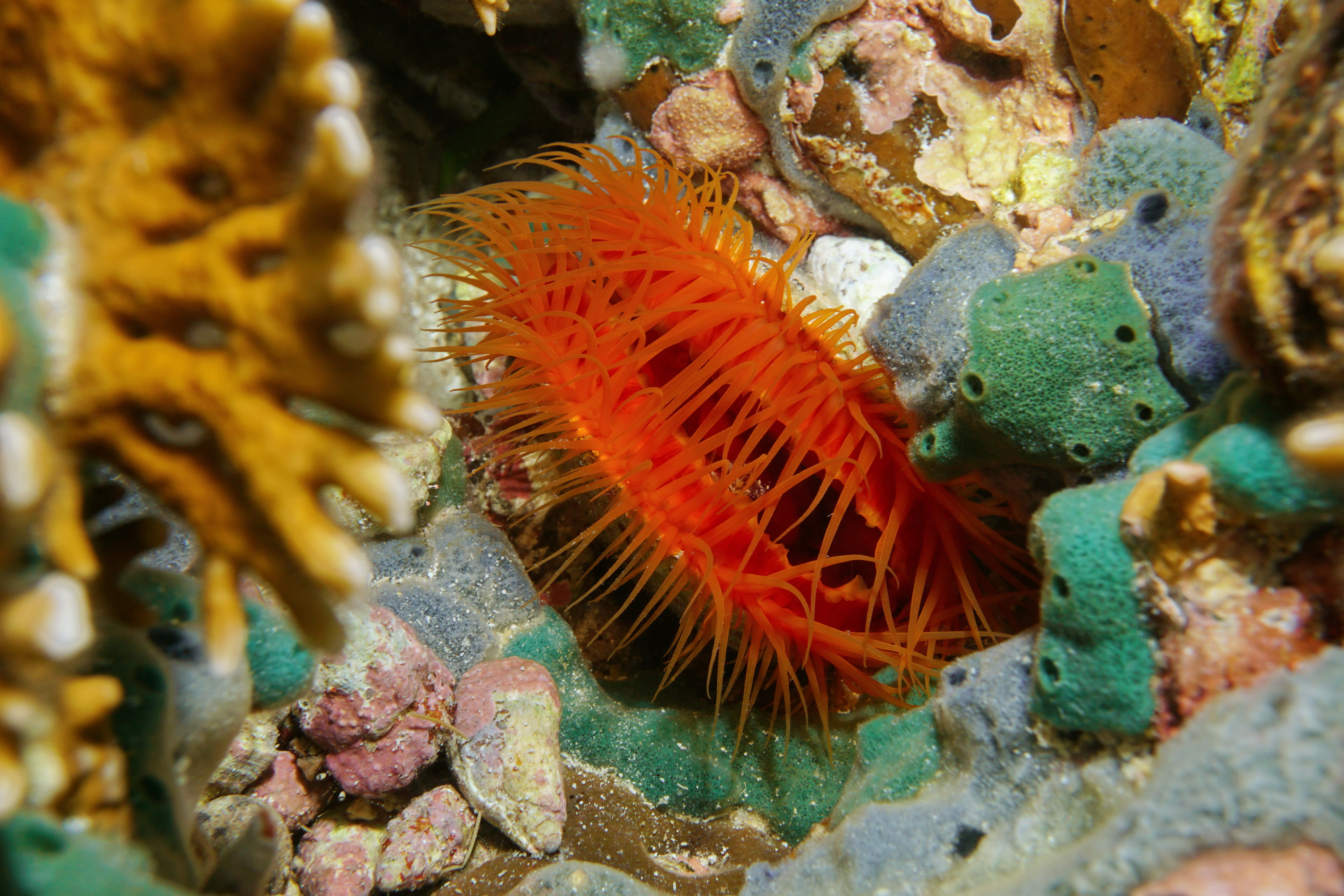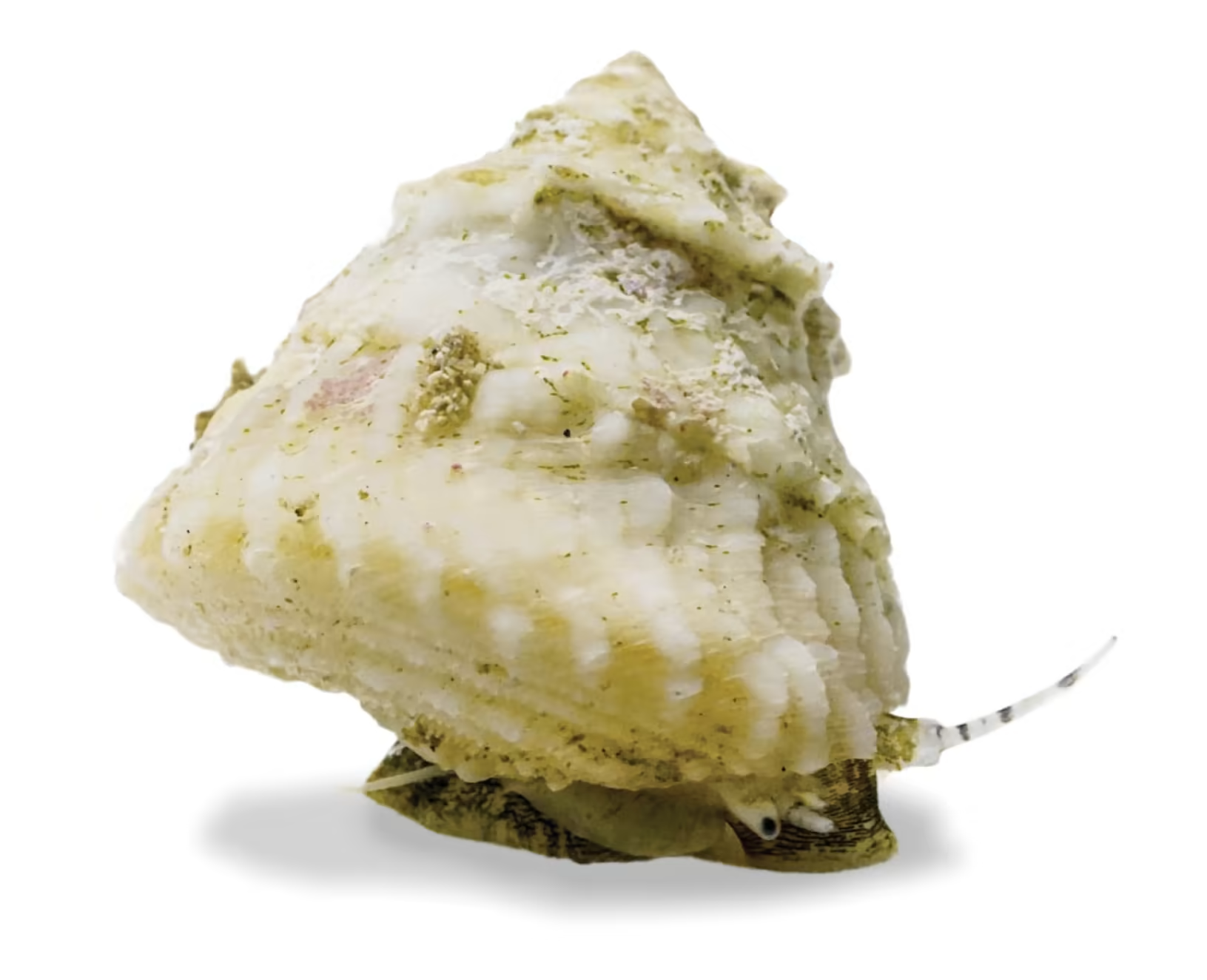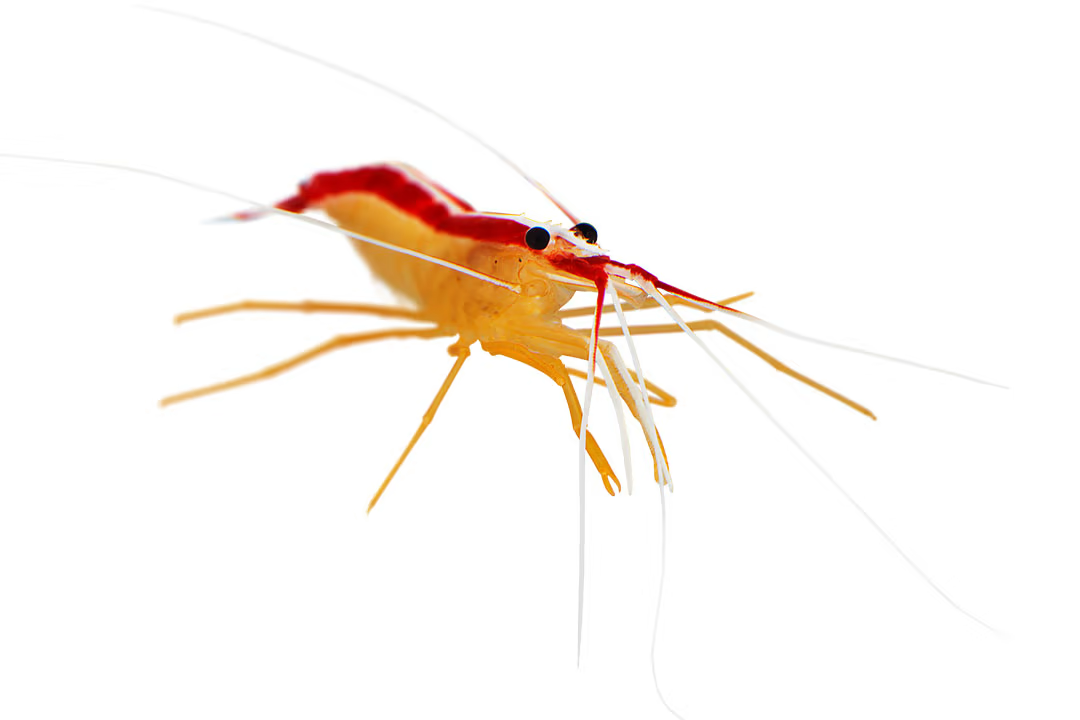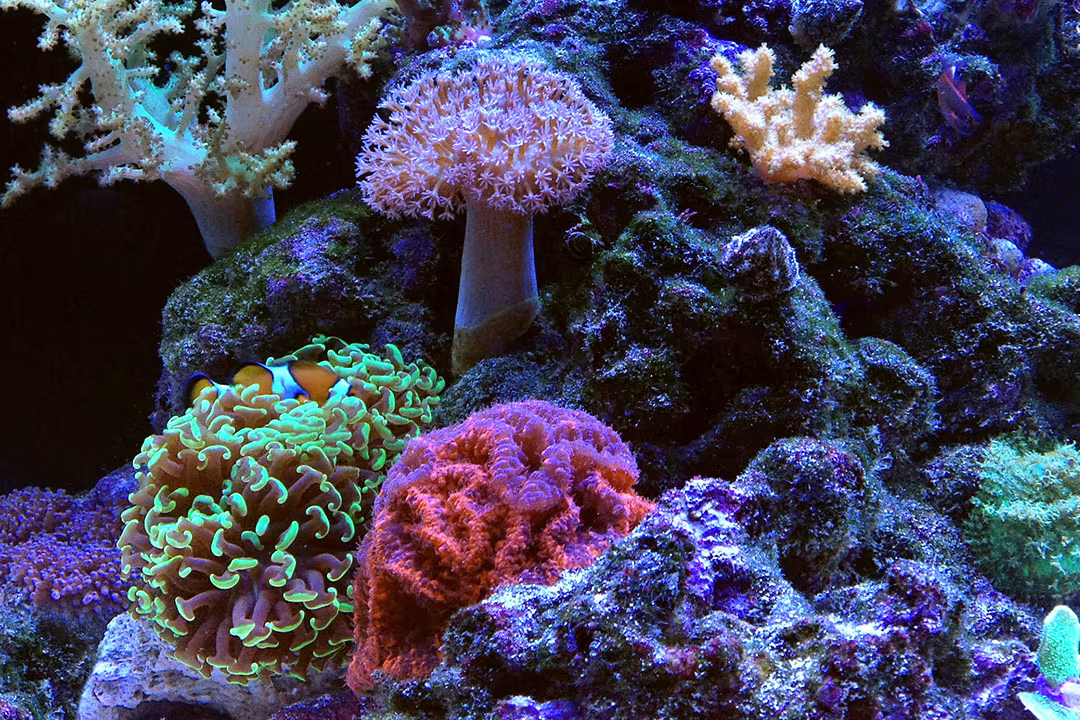Discus Care Sheet
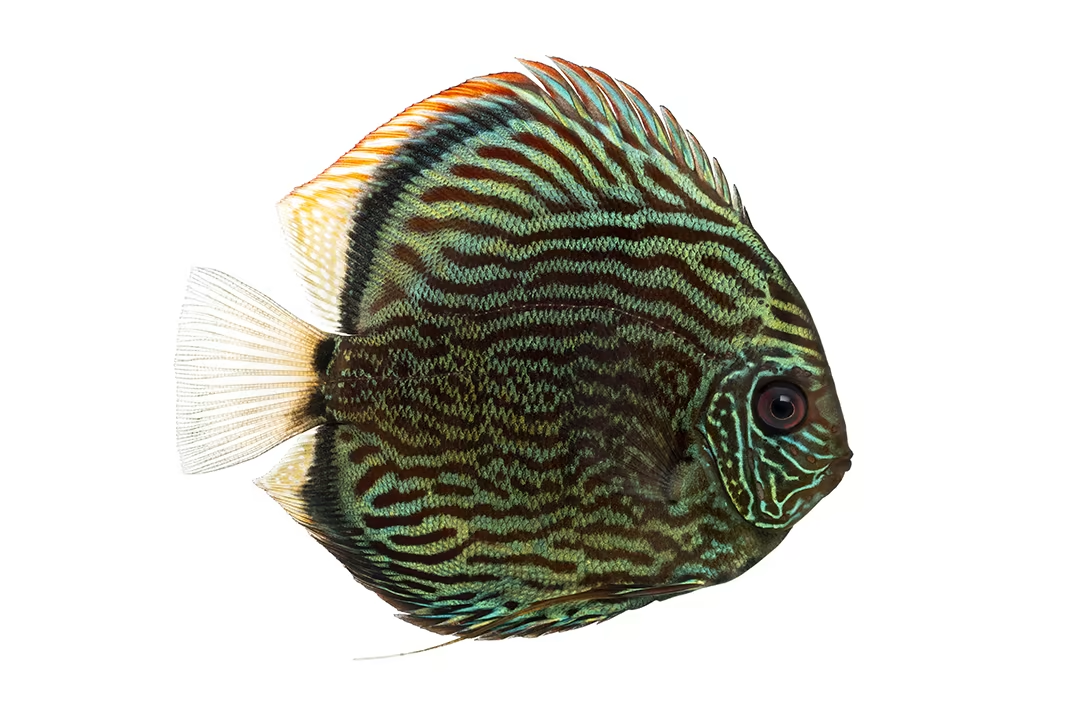
This care sheet covers a variety of discus species, including:
- Blue turquoise discus
- Cobalt discus
- Red pigeon discus
- Blue diamond discus
- Marlboro red discus
- Yellow marlboro discus
- Blue discus
- Blue snakeskin discus
- Red snakeskin discus
- Leopard discus
- Snow discus
- Blue diamond discus
- Red melon discus
Overview
Symphysodon sp.
A member of the Cichlid family and native to South America, almost all freshwater discus for sale today are captive-bred. Because of selective breeding, discus are available in a wide variety of colors and patterns. The body of a discus is round and laterally compressed, an unusual characteristic. Discus can be a little more challenging to care for than other fish.
Typical appearance and behavior
- Discus are vibrantly colored
- One of the few schooling cichlids, discus are social fish who are often found in groups in nature
- Discus prefer the middle and lower areas within the aquarium
- Discus are usually shy and peaceful
Characteristics
| Care Difficulty | Intermediate to advanced |
| Average Life Span | Up to 15 years with proper care |
| Average Adult Size | Up to 8 inches |
| Diet | Omnivore |
| Minimum Habitat Size | 55+ gallons |
| Water Temperature | 78-82°F |
Habitat
Habitat size
Discus prefer and do best in schools (a group of five or more). A minimum of 55 gallons is recommended to safely house a small school of adult discus.
Building your habitat
- Water health - Provide proper filtration to ensure optimal water quality to help maintain health. Slow water circulation should be provided to mimic water currents and high oxygen levels found in the discus’ natural habitat. Stable water quality (pH, ammonia, nitrate, nitrite) and water temperature are critical to the health of aquatic life. If you are unsure of your water quality, bring a sample to Petco for free testing
- Temperature - Discus prefer water on the warmer side. An aquatic heater should be used to help stabilize water temperature, ensuring it does not fluctuate more than +/-2 degrees in either direction in a 24-hour period
- Décor - Discus prefer to have plenty of plant life and a less coarse substrate. Providing rocks and creating hiding places is beneficial
Feeding
What to feed your discus
For a well-balanced discus diet:
- Food may be flakes, pellets, freeze-dried, frozen or live
- Discus enjoy the occasional treat of bloodworms, brine shrimp or mysis shrimp
- Vary diet between vegetables and meaty foods to ensure to ensure proper nutritional balance
Things to remember when feeding your discus:
- Feed small amounts one to two times a day, no more than your fish can eat in 1 to 2 minutes
- Thaw frozen foods before feeding
Discus care
- Water care - Maintaining great water quality with regular water changes and adequate filtration is important to help keep your discus healthy
- Daily: Check filter, water temperature and other equipment
- Weekly: Test water quality at least once a week
- Weekly to monthly: Change 10 to 25 percent of the total volume of water every two to four weeks, or as needed. Change filter media monthly
- Avoid overcrowded conditions as this is a major cause of stress and disease. Maintain good water quality with regular water changes and adequate filtration
Where to buy discus
Various discus are available for purchase at Petco online and in store. If visiting your local location, please call ahead to check availability.
Supplies
- Appropriately sized habitat
- Appropriate food, dry and frozen
- Décor
- Water conditioner
- Filter
- Water test kit
- Full-spectrum lighting
- Net
- Thermometer
- Freshwater substrate
- Heater
- Airline tubing
- Airstone
- Air pump
- Check valve
- Live plants
Tank mates
Discus are usually kept in aquariums with schools of the same species. Although typically peaceful, discus can become territorial when breeding. Suitable tank mates include smaller, more peaceful cichlids such as Apistogramma and ram species. Some species of tetras, including rummynose, cardinals and neons, can make good additions, as long as they are too large to fit in the discus’ mouth.
Health
Signs of a healthy discus
- Clear eyes
- Healthy appetite
- Bright, even coloring
- Fins that are completely intact and undamaged
- Free of parasites or disease
Red flags (If you notice any of these signs, contact your local aquatic specialist or veterinarian.)
- Loss of color or appetite
- Spots or fungus on body or mouth
- Listlessness
- Cloudy eyes or pop-eye
- Elevated scales
- Frayed or discolored fins
- Labored breathing
- Erratic swimming
- Weight loss
- Bloating
Common health issues
| Health Issue | Symptoms or Causes | Suggested Action |
|---|---|---|
| Fin rot | Symptoms or CausesFrayed or disintegrating fins; the base of the fins usually reddens. | Suggested ActionImprove water quality; consult your local aquatic specialist or aquatic veterinarian for treatment. |
| Fungus | Symptoms or CausesWhite cottony growth and/or discoloration of the eyes. | Suggested ActionQuarantine fish; use a commercial antifungal remedy as directed. Consult your local aquatic specialist or aquatic veterinarian. |
| Bacterial infections | Symptoms or CausesCloudy eyes, open sores and/or reddening of the skin. | Suggested ActionImprove water quality; use a commercial antibacterial remedy as directed; consult your local aquatic specialist or aquatic veterinarian for treatment. |
| Ich | Symptoms or CausesWhite spots appear on fins and body; fish rubs against hard objects or swims erratically. Rapid respirations. | Suggested ActionQuarantine fish immediately; add freshwater salt and use commercial ich remedy as directed. Consult your local aquatic specialist or aquatic veterinarian. |
FAQs
- Where can you buy a discus? Various discus species can be purchased at Petco Pet Care Centers and on petco.com. Contact your local Petco for availability.
- How do you sex discus fish? Male discus tend to be larger than females. As male discus mature, the tips of their dorsal, anal and tail fins become pointed while the females’ will remain rounded.
- Where are discus fish from? Discus are native to parts of the Amazon River in South America.
- How do you keep discus fish? Discus should be provided a minimum of a 55-gallon aquarium that has been properly set up with filtration, heater and décor. They should be provided with a variety of foods such as flakes, pellets, and freeze-dried, frozen or live food.
- How big do discus fish get? Adult discus can reach a size of 8 inches.
- What size tank is appropriate for discus? Discus prefer to be in small groups. A minimum of a 55-gallon aquarium should be provided for a small school of adult discus.
- What filter media is best for discus? Filter media that provides biological, mechanical and chemical filtration is ideal.
Notes and resources
Ask a Pet Care Center associate about Petco's selection of products available for the care and happiness of your new pet. All products carry a 100% money-back guarantee.
Because all aquatic life are potential carriers of infectious diseases, such as atypical mycobacterium and salmonella, always wash your hands before and after handling your aquatic life or habitat contents to help prevent the potential spread of disease.
Pregnant women, children under the age of 5, senior citizens and people with weakened immune systems should contact their physician before purchasing or caring for aquatic life and should consider not having aquatic life as a pet.
Go to cdc.gov/healthypets for more information about aquatic life and disease.
The information on this Care Sheet is not a substitute for veterinary care. If you need additional information, please contact your veterinarian as appropriate.
Related Articles
Sponsored
Two Easy Ways to Start Earning Rewards!
Become a member today!Members-only pricing and offers, personalized care notifications, Vital Care points back on every purchase and more!Become a credit card member today!
Earn 2X Pals Rewards points at Petco
when you use Petco Pay!APPLY NOWLearn More About Petco Pay Benefits


